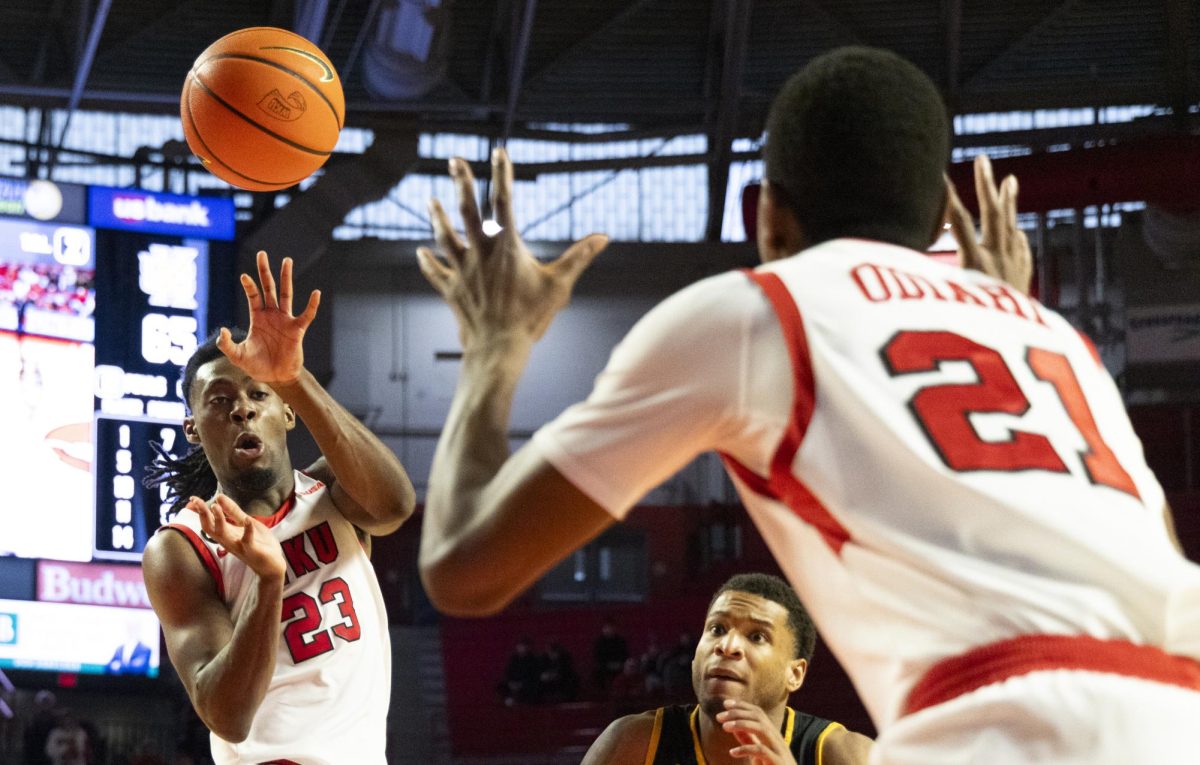Price on Politics: The RNC and presidential debates
April 27, 2022
Presidential debates have been an important part of general election cycles since the second half of the 20th century. Debates were sporadic throughout the beginning of the 1900’s, with the first primary debate being held in 1948. In 1960, the first televised presidential debate was held in 1960 and was between John F. Kennedy and Richard Nixon.
While debates were held throughout the 1960’s and 1970’s, it was not until 1987 that a nonpartisan body–the Commission on Presidential Debates–was created to ensure unbiased debates. According to the body’s website, the CPD was created “to ensure, for the benefit of the American electorate, that general election debates between or among the leading candidates for the offices of President and Vice President of the United States are a permanent part of the electoral process.”
The website goes on to state that the CPD’s “primary purpose is to sponsor and produce the quadrennial general election debates and to undertake research and educational activities relating to the debates.” The commission has sponsored every series of general election presidential debates since 1988.
On April 14, the Republican National Committee released a statement declaring that “the RNC voted to withdraw from the biased CPD, and we are going to find newer, better debate platforms to ensure that future nominees are not forced to go through the biased CPS in order to make their case to the American people.”
The RNC also announced a pledge which all Republican presidential candidates will sign, stating that they will only participate in debates sanctioned and approved by the RNC.
This announcement comes after a months-long fight on the part of the Republican Party. During the 2020 presidential campaign, President Trump accused the CPD of being biased against him after announcing it would change rules and format to allow for a “more orderly discussion.”
In January of this year, RNC Chairwoman Ronna McDaniel penned an op-ed for Brietbart News, in which she outlined the requests of the GOP to the CPD for debate reform. Among these requests were that moderators be nonpartisan and have no history of working for candidates and that debates be held before the start of early voting.
McDaniel wrote that “Republicans will no longer accept such bias and will work to find new, unbiased, modern debate platforms because the American people deserve nothing less than basic fairness.”
I feel that these requests are valid. The CPD is a nonprofit, nonpartisan organization. Holding nonpartisan debates is the commission’s purpose. The appearance that debates are biased to one side or another is important for the commission not to have. If a body such as the CPD is to act and appear nonpartisan, then these requests make sense.
It is in the RNC’s withdrawal from the CPD and its pledge by candidates to only participate in RNC-sanctioned debates where the issue arises.
The purpose of presidential debates is to provide a place for presidential candidates to speak directly with the American people and to convince Americans that they are worthy of their votes. Since 1988 the Commission on Presidential Debates has produced debates in a nonpartisan way.
This isn’t to say that reform isn’t needed and that updates are not necessary. Withdrawing from the commission shows that the RNC is not committed to bipartisanship and fairness like it claims to be. The United States has become more divided than it has been in recent memory. This move by the GOP shows that the party is not committed to compromise and debate, but further dividing the American people by promoting an “ours or nothing” approach to electoral politics.
Politicians on each side of the aisle hate compromise. The Republicans are in a position, however, to be the bigger person. Since the election of Donald Trump in 2016, the party has slowly drifted further to the right. Instead of appealing to the center of their party, Republicans have continually alienated these moderates and the withdrawal from the CPD will continue to do so.
While one cannot say for certain where the Republicans will go for debates in 2024 and beyond, one can imagine that they will go to places friendly to the party. They will go places that make their candidates look good while avoiding groups and news outlets that are either antagonistic to Republicans or are committed to nonpartisan reporting and debates.
It is this unbiased nature of the GOP itself deciding where and how its candidates will debate that will create more uncertainty and division. Republicans will not only no longer have the critique from Democrats but will also miss the opportunity to have their ideas stand against those of their opponents.
If Republicans wish to have the opportunity to see how their ideas and proposals stand against those of the Democrats’ then the withdrawal from the CPD must be reversed. If the Republicans are truly dedicated to promoting fairness and the discussion of ideals, they cannot hold their own debates.
The RNC’s withdrawal from the CPD represents a larger trend by the party to the right and further from the Republican Party of even ten years ago. The GOP no longer allows for disagreement and dissent. Anyone that voices opposition to the leadership is ousted from positions, like Liz Cheney in the aftermath of her opinions about the Jan. 6 attack on the Capitol.
Withdrawing from the CPD shows that the GOP is no longer able to withstand attacks from the other side. It shows that in order to stay relevant, the Republicans must activate a base that is so far right it is no longer reminiscent of the party of Reagan and the Bushes.
Stepping away from the CPD is another step the Republican party is taking closer to irrelevance. If it is to remain one party, the Republicans must create a message of unity within the party closer to the center.
If the Republican party truly cares about fairness for all Americans and not for the preservation and stagnation of its ideals, it would support voting rights legislation and work with the CPD to create reform, not against it.
Commentary writer Price Wilborn can be reached at [email protected]. Follow him on Twitter @pricewilborn.














